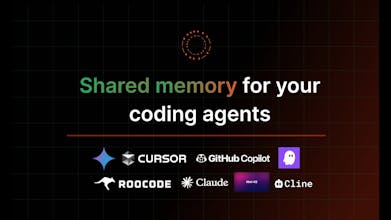Byterover is a self-improving memory layer for your AI coding agents—create, retrieve, manage vibe-coding best practices across projects and teams. You can start now by installing Byterover's extension via your AI IDE like Cursor, Windsurf, and more.
This is the 3rd launch from Byterover. View more

Cipher by Byterover

Cipher is an open-source memory layer, connected to AI IDEs and CLIs through MCP. Auto-generate coding memories that scale with your code-base, auto-retrieve relevant coding memories and knowledge across IDEs, projects and teams.






Free
Launch Team / Built With









Byterover
Byterover
Impressive work! 🔥
Byterover adds real memory to AI coding agents, making them smarter across sessions and teams. The IDE integrations and open-source Cipher engone are impressive.
Excited to see how this evolves—especially for larger codebases and team workflows. Congrats on the launch!
Byterover
@tim_bou Thanks so much, Tim! Really appreciate your kind words and support. We’re excited about what’s ahead and can’t wait to share more updates as ByteRover grows. Stay tuned, and thanks again for cheering us on!
Byterover